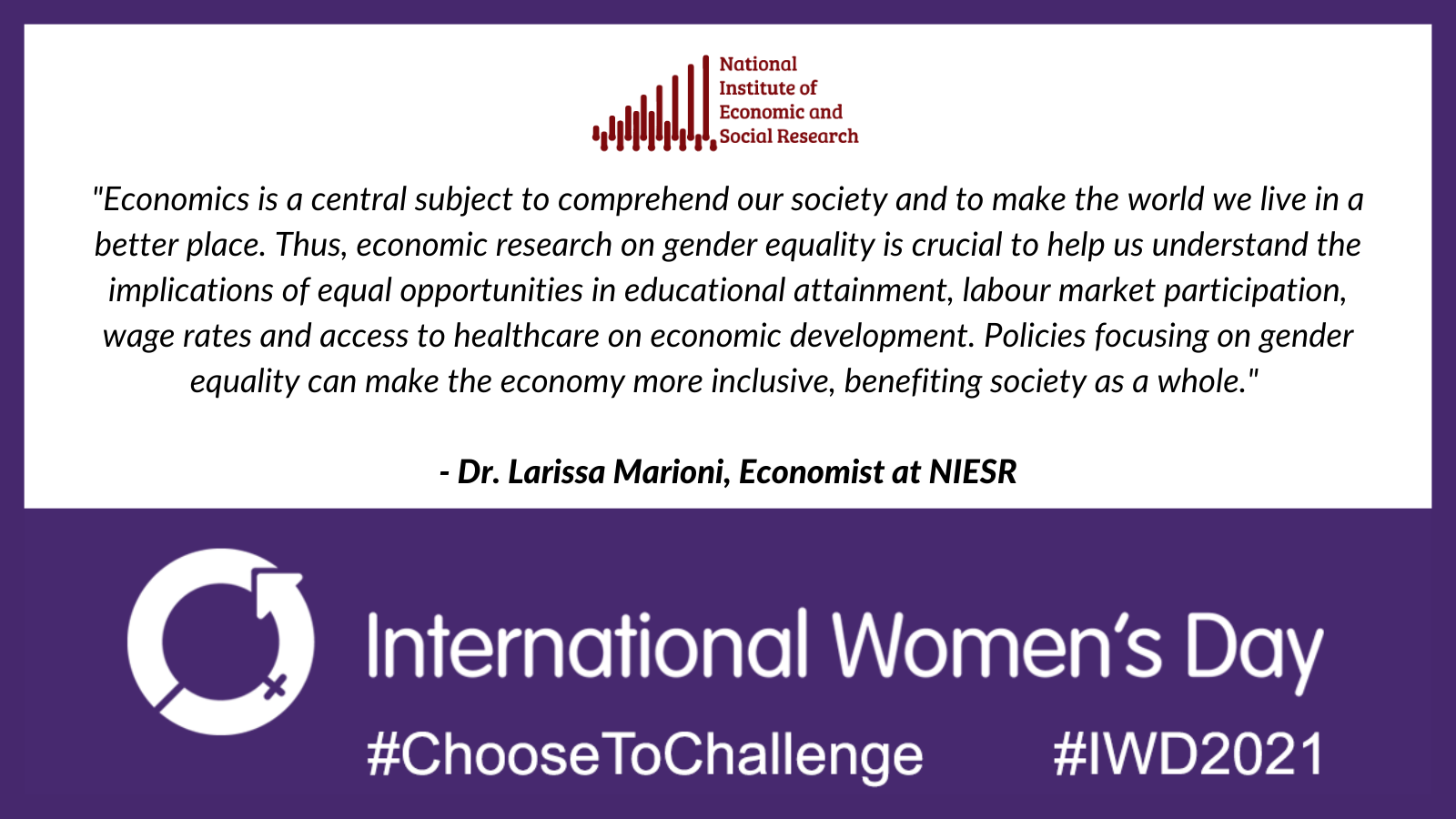International Women’s Day 2021 at NIESR: Dr Larissa Marioni
The theme for International Women’s Day (IWD) 2021 is #ChooseToChallenge, asking us to “Celebrate women’s achievement. Raise awareness against bias. Take action for equality.”.

The theme for International Women’s Day (IWD) 2021 is #ChooseToChallenge, asking us to “Celebrate women’s achievement. Raise awareness against bias. Take action for equality.”.
To celebrate IWD at the National Institute of Economic and Social Research (NIESR), we are publishing a series of Q&A blogs written by women at NIESR to explore various topics to celebrate their achievements, including the challenges and barriers they have overcome. We hope these blogs raise awareness against bias and encourage us all to take action for equality.
Dr. Larissa Marioni is an Economist at NIESR and Research Associate at the ONS-funded Economic Statistics Centre of Excellence (ESCoE). She specialises in applied micro-economics and data analysis. Larissa’s research interests lie primarily in labour economics and economics of education with a broader research interest in development economics and policy analysis. She holds a PhD in Economics from the University of Southampton.
How long have you worked at NIESR, and what does your role involve?
I have been working at NIESR for 1 year and 3 months. I am an Economist, and my role involves delivering innovative research in applied economics that combines high-quality standards with relevance to policymaking. I work with colleagues in conducting research, preparing outputs and reports and presenting them to academics, policy-makers and the public in general.
What does International Women’s Day mean to you?
International Women’s Day is a day of reflection and inspiration. It is an opportunity to celebrate women’s achievements, to reflect on the effort of previous generations, recognise our role in the present and inspire the future generation. Also, it is a reminder for everyone (men and women) that we need to work together to achieve equality inside and outside the workplace.
What are you currently working on at NIESR?
My current work includes assessing the extent to which regional disparities in education investments can explain significant differences in regional economic growth. It also investigates the impact of migration on regional human capital stocks and how it can affect regional growth and standards of living.
What advice would you give a young woman who is considering a career in economic or social research?
I would advise her to be determined and curious, to have confidence in her abilities and to speak up about her ideas. Economics is an exciting subject, however, it is still a field where women are underrepresented; thus, we need more female economists to help us understand better our society.
What role can social science research play in achieving gender equality?
Economics is a central subject to comprehend our society and to make the world we live in a better place. Thus, economic research on gender equality is crucial to help us understand the implications of equal opportunities in educational attainment, labour market participation, wage rates and access to healthcare on economic development. Policies focusing on gender equality can make the economy more inclusive, benefiting society as a whole.
How can we overcome barriers to achieving gender equality?
First of all, we need to make people aware of the problem. Then, we can take steps to make the world more inclusive, such as improving training, developing mentoring programs and creating more diverse committees. Ultimately, we need to listen to women to find out the problems they face and to be able to empower them.